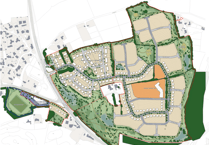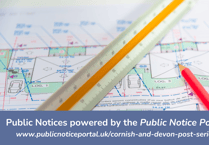LET us start with a hypothetical situation, albeit one that some of you reading this may well have some lived experience in.
You live next to a large space, let’s say a community hall, and somewhere down the line the trustees of that venue decide that, actually, they’d like to open a pub or social club in the building in order to better benefit from what is commonly known as the night time economy. As part of their plans, in addition to serving alcohol until midnight, they wish to be able to play recorded music and have live bands during their opening hours.
You would want to know about it, right?
Traditionally, anyone wishing to apply to their local authority for a licence is required to advertise their intentions in a newspaper. The information has to include what it is they’re applying for, who it is applying for it, the times it would be licensed for and how residents or any other relevant person can make representations related to the application.
The only problem is the government in its bid to cut ‘red tape’ doesn’t think it is that important that you are told about these licensing applications anymore, and it wants to remove the requirement to do so.
While at the moment these plans are merely a consultation, history tells us that more often than not, it’s a token listening exercise and they’ll go ahead with it anyway.
In its proposal to remove the requirement to advertise licence applications in newspapers, the government claims it is to ‘modernise’ the system.
What they haven’t paid heed to, however, is the fact that public notice advertising has already modernised.
The notices advertised in the printed newspapers are also put online via the Public Notice Portal, where the simple typing in of your postcode will give you all the applications relevant in your area. Increasingly, those notices are also forming the basis of reporting stories that matter to you, whether it is for alcohol licensing, planning or otherwise.
There are elements of the system used for engaging with public notices that could do with reforming.
For example, if it wasn’t for the Public Notice Portal — which was created by the country’s news publishers working together for the benefit of their readers — trying to find what is going on outside of the coverage in your local newspaper would be a minefield with how much information is available online varying greatly.
That could be reformed, with a simple, online form available for residents to make their representations as opposed to relying solely on writing letters or occasionally, email in the same way the planning system has operated in recent years.
Take a moment to go back to the hypothetical question at the start, and now imagine that could be you. If these government proposals go ahead, it might just be.
Every voice counts. Have your say on these proposals here: www.gov.uk/government/calls-for-evidence/reforming-the-licensing-system
.png?width=752&height=500&crop=752:500)




Comments
This article has no comments yet. Be the first to leave a comment.